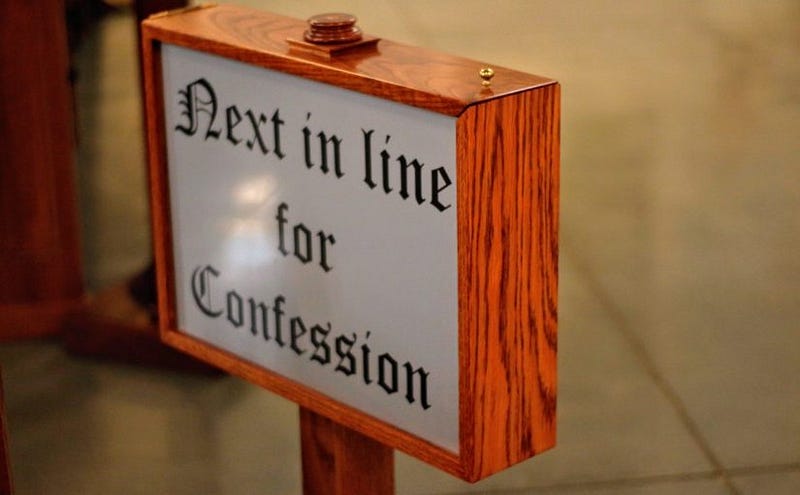Confession Is Good For The Soul

When you hear the word “confession,” how do you feel? It makes me a bit uncomfortable. I am not all that excited about airing all my dirty laundry.
When you hear the word “sin,” how do you feel? If you’re like most of us these days you probably think, “Who are you to judge? Jerk.”
Something that I keep trying to lean into in my life is reality. I want to honestly assess myself. That whole “know thyself” thing has become a near obsession. There is great power in understanding ourselves, our passions, our calling, our longings, and our brokenness.
Too often I find that I try to talk myself out of my brokenness. When I mess up in relationships with others or myself, I typically try to argue it away. When I’m unloving or uncaring, I usually project my brokenness onto others.
Owning our own stuff is really hard to do. It demands us to practice the ancient spiritual discipline of confession.
I’m a protestant and this act of confession is made a bit harder for me because there is no standard practice of it in my tradition. My Catholic friends who are serious about their faith go and make confession regularly to their priest. There is an understanding that they need this and they need someone to hear their confession.
For us protestants we have held to the idea that confession is something just between us and God. Which it is, but not “just.” Why? Because we need someone who will say, “Is there anything else? Did you lie to me?”
Confession is good for the soul. It is good for our well-being. Owning our sin and getting rid of it is like oxygen for our spirit. I love the image of spiritual breathing. The picture that you exhale your sin (like carbon dioxide) and inhale grace (like oxygen).
The ancient Jewish king, David, wrote a poem where he says,
Happy are those whose transgression is forgiven, whose sin is covered. Happy are those to whom the LORD imputes no iniquity, and whose spirit is no deceit.
While I kept silence, my body wasted away through my groaning all day long. For day and night your hand was heavy upon me; my strength was dried up as by the heat of summer.
Psalm 32:1–4
Two things stand out to me in this poem. First there is happiness when we know we are forgiven. There is happiness in the experiential knowledge of grace. Second, holding onto sin in silence kills us from the inside out.
In another poem this same king writes,
Sing praises to the LORD, O you his faithful ones, and give thanks to his holy name.
For his anger is but for a moment; his favor is for a lifetime. Weeping may linger for the night, but joy comes with the morning.
Psalm 30:4–5
When I confess my sin to another, when I confess my sin to God, my greatest fear is anger. I worry that they will break the relationship. With those who are faithful friends, like God, their anger is momentary. Usually it is not even anger so much as disappointment. But their favor lasts a lifetime.
When I invite friends into my confession they become for me agents of grace. They speak words of grace to me.
When grace comes then comes joy.
Tomorrow morning we will light the third candle of Advent, the joy candle. Truly joy comes in the morning.
Originally published at danielmrose.com on December 15, 2018.